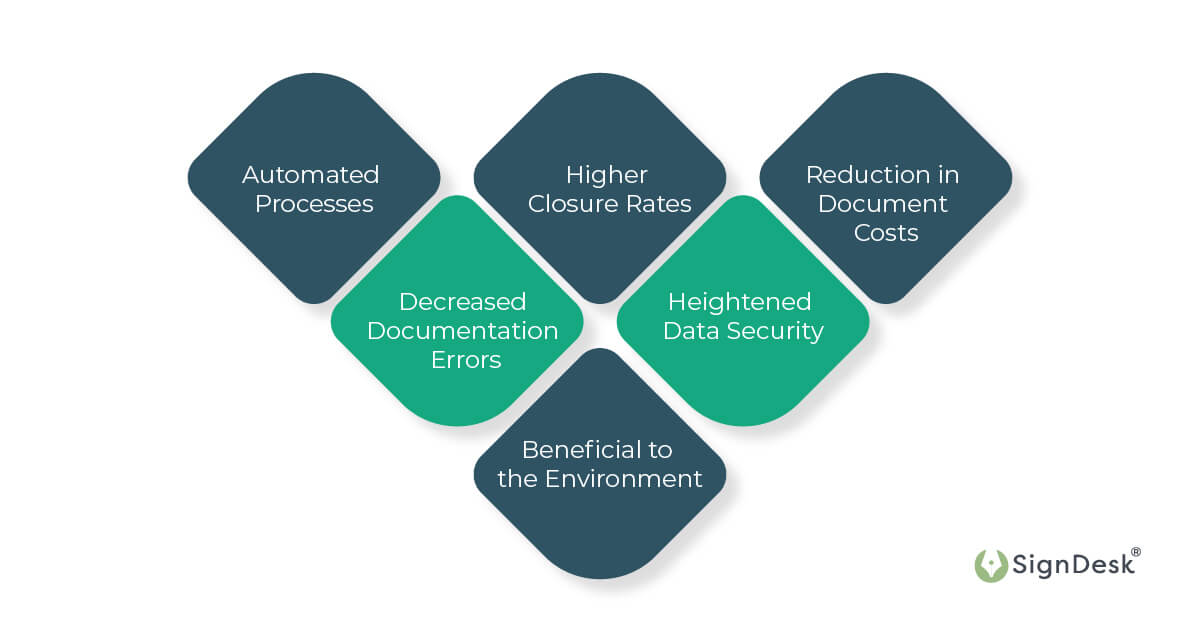What is an Online Signature?
An online signature, also known as a digital signature or e-signature, refers to a secure and legally binding way of signing documents or agreements using digital methods. An online signature is a virtual counterpart to the traditional handwritten signature on paper documents.

Online signatures are generated using techniques that ensure their legitimacy, security, and non-repudiation, meaning that the signer cannot later deny their involvement or intent to sign the document.
Online signatures are widely utilized across various industries and sectors as a quick and efficient way to sign contracts, agreements, forms, and other documents without being present in person or using paper.
Anatomy of an Online Signature- What are the Essential Components?
Crafting a legally binding signature online involves ensuring that it contains specific components contributing to its authenticity and enforceability.
An online signature comprises several key elements that collectively ensure an electronically signed document’s authenticity, compliance, integrity, and legal validity. These components vary based on the regulatory framework and jurisdiction but generally include:
- Signature Image: This is a digitally generated representation of the signer’s handwritten signature. It could be a stylized depiction or an image of the signer’s signature.
- Signer’s Name: The name of the signer frequently appears next to or beneath the signature image. This aids in determining who signed the document.
- Date & Time Stamp: The online signature is typically presented with the date and time it was made. This indicates the precise moment that the document was signed.
- Unique User/Document ID: This is a distinct identifier assigned to the signer or the document to aid tracking, identification, and recordkeeping.
- Signature Certificate: In some instances, a Digital Signature Certificate (DSC) is issued by a Certifying Authority (CA) to ensure that the signer’s identity is verified and the signature is genuine. It contains the signer’s identifying information and private key.
- Audit Trail: This document contains a chronological record of all the information associated with the online signing process, including who signed the document, when they signed it, any changes made to the document, and relevant metadata.
Legal Validity of Online Signatures
Online signatures are becoming more widely accepted across nations as a secure and convenient way to conduct business transactions and formalize agreements. The legal validity of online signatures varies with different jurisdictions and primarily relies on factors like the technology used, compliance with specific laws and regulations, type of transaction, industry standards, type of signature, authentication method, consent of parties involved, and so on.
- Information Technology Act, 2000 (India)
The Information Technology Act, 2000 (IT Act) offers electronic signatures (also known as e-signatures) legal recognition in India. The legal framework for electronic transactions, records, and signatures is provided under this act. The IT Act recognizes electronic signatures and electronic records as legally valid and equivalent to their paper-based counterparts.
- ESIGN Act & UETA (United States)
The Electronic Signatures in Global and National Commerce Act (ESIGN) and the Uniform Electronic Transactions Act (UETA) establish the legitimacy of electronic signatures for the majority of transactions in the United States. As long as specific requirements are satisfied, these laws ensure that electronic signatures and records have the same legal impact as paper-based signatures.
- eIDAS Regulation (European Union)
The eIDAS Regulation (Electronic Identification and Trust Services) provides a framework to ensure the legal validity of electronic signatures for member states in the European Union. The regulation classifies electronic signatures into three levels: simple electronic signatures, advanced electronic signatures, and qualified electronic signatures, with the latter two considered to be more secure and have higher legal weight.
- Electronic Transactions and Trust Services Law (UAE)
The principal law governing the use of digital signatures in the UAE is the Electronic Transactions and Trust Services Law. It outlines the regulatory framework for electronic signatures and the use of electronic contracts, documents, and signatures. The law establishes the legality of online signatures and strengthens their security and value from a legal standpoint.
Similar electronic signature rules or regulations have been established by other nations worldwide to encourage the use of online signatures. These laws usually strongly emphasize protecting the authenticity of the online signature on documents, the signer’s identity, and the integrity of the signed document.
How to Create an Online Signature?
Establishing an online signature procedure entails several processes that enable firms to generate a document, invite participants to sign it electronically, gather those signatures, and then download the signed document.
Here is an outline of how to create an online signature and sign a document electronically:
- Upload & Prepare Document
The online signature process initiator/user has to first create a document such as an agreement, form, contract, or any other document type that needs to be signed.
Users can upload pre-drafted documents into SignDesk’s online e-Signature portal or choose a suitable option from the various templates available in the digital template library.
After selecting the required template, the initiator fills the content fields with relevant information or adds other required fields and proceeds to the next step.
- Invite Signers
The initiator provides details of the signer(s) details, including their names, and specifies their email IDs and mobile numbers to start the online signing process.
SignDesk then sends out an invite to signers over email and SMS. They will receive a link to the document to add their electronic signatures.
- Sign Document Online
The recipients receive the invite link, which will direct them to the document that has to be signed online. The initiator can set up a parallel or sequential signing order when more than one person or party is required to sign the document.
The signer(s) reviews the document and enters a one-time authentication password to sign the document online. The signer’s signature appears in the signature field of the document, along with his name, the date, and time stamps.
- Download Document
Signers can download and store the e-signed document once all the stakeholders have completed signing the document.
The online signature PDF document will include the signers’ electronic signatures and an audit trail that chronologically documents the signing process.
eSign Insights: Benefits of Adopting Online Signatures
Innovative solutions are reshaping the landscape of business processes, and online signatures have become a powerful tool for altering how documents are executed. By enabling secure and legally recognized online signatures, businesses can streamline processes, increase efficiency, reduce manual effort, and experience several other advantages.

- Automated Processes: Online signatures speed up business operations by automating document processing and approval workflows, doing away with human handoffs and approval delays. Using online signatures accelerates business procedures by optimizing workflows and reducing approval cycle duration by up to 75%.
- Higher Closur:e Rates: E-signatures expedite contract completion by reducing the time needed to collect signatures and bind agreements legally, leading to faster business transactions and higher deal closure rates. Businesses can draft documents and complete approval workflows in 10-15 minutes using online signatures and document templates.
- Reduction in Document Costs: Online signatures provide significant cost savings in document creation and circulation because they do away with the need for physical paper, printing, and postal costs. The usage of digital documents and online signature solutions can help companies reduce up to 40% of their costs, including paper and printing costs, storage and shipping costs, compliance and auditing costs, etc.
- Decreased Documentation Errors: According to studies, online e-signature software can reduce the number of errors in documentation by up to 80%. These solutions offer pre-made document templates with dynamic fields that help businesses create error-free documents effortlessly.
- Heightened Data Security: Online signature software provides advanced data security features and is designed to comply with various regulations and data security standards. Online electronic signature providers like SignDesk offer businesses the utmost level of data security by adhering to SOC2 Type 2, ISO, GDPR, HIPAA, CCPA, and NIST, among others.
- Beneficial to the Environment: Using eSignatures, businesses, and individuals could save up to 2.5 billion trees over 20 years, lowering the demand for paper. This decrease in paper use aids in reducing detrimental environmental effects.
Elevate Document Execution Workflows With SignDesk’s Online Signatures
Adoption of online signatures is increasing as businesses navigate an increasingly digital market. The popularity of electronic signatures marks an essential shift in how firms manage documents and conduct business.
Implementing online signature solutions into documentation and approval workflows brings effectiveness and ease, redefining how document execution has traditionally been performed.
SignDesk offers businesses numerous online signature solutions like OTP-based electronic signatures, Aadhaar eSign, digital signatures with DSC, and video-based evidence creation. They can help enterprises create a simple, quick, and efficient way to sign their documents online.
SignDesk’s online signature workflow has helped clients reduce document execution TAT from a 10-20-day span to just under 10 minutes. In addition, clients could slash their documentation expenses by 30-40% and improve audit efficiency by almost 80%.
Online signatures have become indispensable to contemporary corporate procedures because they erase geographical constraints, save paperwork, and accelerate workflows. Workflows integrating online signatures open up efficiency, convenience, and security as the world embraces digital change.
Book a free demo with our solution experts to see how SignDesk’s online signature workflow can expedite and streamline your processes.